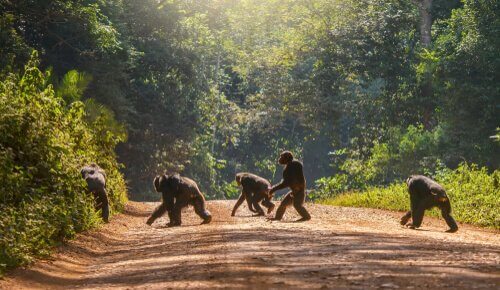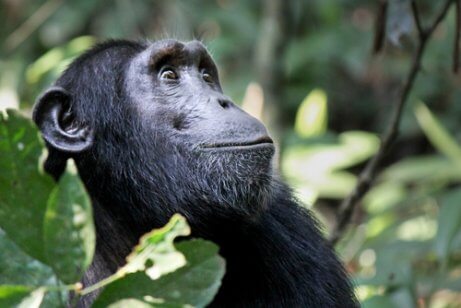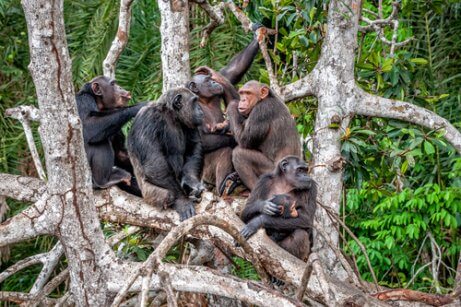Chimpanzee Culture is Disappearing

Within the animal kingdom, primates are an especially interesting group. They have different behaviors and unique cultural traits. Species such as chimpanzees have clear cultures, but a study says chimpanzee culture is disappearing.
Animal culture
There are many animal species that are in danger of extinction. However, we rarely focus on the other losses that go along with the disappearance of these species, such as their culture. It’s undeniable that animals have cultural traits.
For example, monkeys go back to the time of the Stone Age, different parrot species have different dialects, and the amazing hunting techniques of killer whales all prove that these cultural traits exist.
Of course, the culture of most animals is far different from that of humans. In all of them, however, there are behavior patterns of specific populations that are transmitted from generation to generation. This is something that is the basis of cultural behavior that we share as humans and with the rest of the animal kingdom.
On the other hand, the idea that the culture of these animals is also at risk of extinction is something that few people talk about. A study that was published in a journal called Nature is important because it’s drawing attention to this problem. The cultural heritage of other species is also at risk, as well as the ecological benefits they bring.

Ultimately, species’ cultures help them take full advantage of their natural resources, but these resources are being affected by human exploitation.
A study warns that chimpanzee culture is disappearing
A team led by researchers from the Max Planck Institute has coordinated fieldwork in 46 locations and 15 countries. This has allowed them to analyze 31 behavior patterns in 144 different chimpanzee communities over the course of 9 years of research.
Other studies had already looked at chimpanzee culture, but they never analyzed the impact of human activities on these cultures.
Parameters that the researchers used to measure the degree of degradation due to human presence included the number of people living in the area and the amount of infrastructure or forest. As a result, research shows that more than 88% of cultural behaviors are being lost in areas with high human impact.

Therefore, chimpanzee culture farthest from human populations are resistant to this loss. This is true of the curious chimpanzees of the Goualougo Triangle. On the other hand, those who live in areas with larger human populations are suffering from cultural loss too.
The effects of cultural loss
Of course, the fact that the species itself is disappearing also has clear consequences for cultural recession. There are fewer individuals and therefore less transmission of these incredible behavior patterns. In other words, humans are, directly and indirectly, responsible for this chimpanzee culture disappearing.
As a result, researchers warn that we need to not only protect the animals as living beings. We also need to preserve their behavior and culture. In fact, there are several nature protection agreements that call for the complete protection of biodiversity. This includes protecting animal behavior.
The scientific community has been demanding more and more for areas to be created in order to protect chimpanzee culture and the cultures of other species.
All cited sources were thoroughly reviewed by our team to ensure their quality, reliability, currency, and validity. The bibliography of this article was considered reliable and of academic or scientific accuracy.
Kalan A., Kühl H. et al, “Human impact erodes chimpanzee behavioral diversity”, Science, marzo de 2019, DOI: http://science.sciencemag.org/lookup/doi/10.1126/science.aau4532
